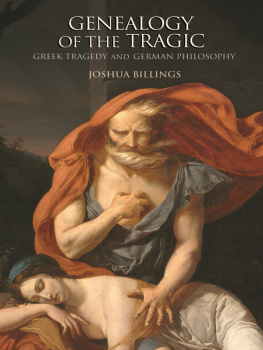OXFORD CLASSICAL MONOGRAPHS
Published under the supervision of a Committee of the
Faculty of Classics in the University of Oxford
The aim of the Oxford Classical Monograph series (which replaces the Oxford Classical and Philosophical Monographs) is to publish books based on the best theses on Greek and Latin literature, ancient history, and ancient philosophy examined by the Faculty Board of Classics.
The Hidden Chorus
Echoes of Genre in Tragic Lyric
L. A. SWIFT


Great Clarendon Street, Oxford OX2 6DP
Oxford University Press is a department of the University of Oxford.
It furthers the Universitys objective of excellence in research, scholarship,
and education by publishing worldwide in
Oxford New York
Auckland Cape Town Dar es Salaam Hong Kong Karachi
Kuala Lumpur Madrid Melbourne Mexico City Nairobi
New Delhi Shanghai Taipei Toronto
With offices in
Argentina Austria Brazil Chile Czech Republic France Greece
Guatemala Hungary Italy Japan Poland Portugal Singapore
South Korea Switzerland Thailand Turkey Ukraine Vietnam
Oxford is a registered trade mark of Oxford University Press
in the UK and in certain other countries
Published in the United States
by Oxford University Press Inc., New York
L. A. Swift 2010
The moral rights of the author have been asserted
Database right Oxford University Press (maker)
First published 2010
All rights reserved. No part of this publication may be reproduced,
stored in a retrieval system, or transmitted, in any form or by any means,
without the prior permission in writing of Oxford University Press,
or as expressly permitted by law, or under terms agreed with the appropriate
reprographics rights organization. Enquiries concerning reproduction
outside the scope of the above should be sent to the Rights Department,
Oxford University Press, at the address above
You must not circulate this book in any other binding or cover
and you must impose the same condition on any acquirer
British Library Cataloguing in Publication Data
Data available
Library of Congress Cataloging in Publication Data
Library of Congress Control Number: 2009938570
Typeset by SPI Publisher Services, Pondicherry, India
Printed in Great Britain
on acid-free paper by
CPI Antony Rowe, Chippenham, Wiltshire
ISBN 9780199577842
1 3 5 7 9 10 8 6 4 2
For my parents
Preface
THIS book began life as a doctoral thesis funded by an Arts and Humanities Research Council grant which I held as a student at Magdalen College, Oxford. The process of converting the thesis into a book was done while I was a Junior Research Fellow at Trinity College, Oxford, and I am tremendously grateful to Trinity for the support which it provided during this period.
Two sections of the book are based on articles which I have published elsewhere. Parts of appear in my article How to Make a Goddess Angry: Making Sense of the Demeter Ode in Euripides Helen, Classical Philology 104.4 (2009). I would like to thank both journals for their permission to reprint this material.
A far more personal debt is owed to those individuals who have helped shape my work. For the initial stages, my doctoral supervisor, Armand DAngour, and my former tutor, Oliver Taplin, provided me with a great deal of support, and their advice has always been much appreciated. I am profoundly grateful to my two examiners, Chris Carey and Chris Pelling, who were kind enough to provide a great deal of feedback on the thesis. Without their comments the book would be much the poorer. I am also extremely grateful to Gregory Hutchinson, my adviser to the Press, who read the manuscript with a keen eye for detail and whose suggestions have been most helpful and thought-provoking. I would also like to thank Patrick Finglass for his comments on early drafts of several sections, and David Wallace for his help with genre-theory and methodology.
Finally, special thanks are due to Bill Allan, not only for his detailed comments on the entire book, but also for his constant encouragement and support in both academic and non-academic ways.
L.A.S.
Oxford, March 2009
Contents
Abbreviations, Texts used, and
Other Conventions
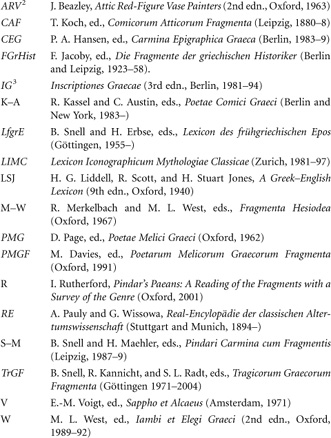
Journal abbreviations are as in LAnne Philologique.
For the sake of simplicity, when citing tragedy I use the most recent OCTs unless otherwise stated: for Aeschylus, the edition of D. L. Page; for Sophocles, the edition of H. Lloyd-Jones and N. G. Wilson; for Euripides, the edition of J. Diggle.
All translations are mine.
Note on orthography and terminology
When referring to lyric genres, I use the transliterated form of the Greek word in italics (e.g. paian not paean; hymenaios not hymenaeus). I also use the English adjective that derives from these nouns (e.g. paeanic, hymenaeal), for which the Anglicized spelling is used. However, when I am talking about how a particular Greek word is used, without prejudice to whether it is in fact a reliable genrename, I give the Greek word untransliterated (e.g. the Greeks use the word with a range of connotations).
I use the uncapitalized form chorus when referring to the chorus as an institution, or the tragic chorus in general, and the capitalized form Chorus when referring to a particular chorus in a play. Thus the tragic chorus has a range of functions, but the Chorus of Medea show their loyalty to the protagonist.
Introduction
IN recent years, scholars of Greek tragedy have become increasingly aware that our reading of the plays is enhanced when we view them in relation to the society that produced them. This has proved an important development, and the analysis of tragedys relationship to Athenian politics, ideology, and religious practice has enriched our interpretation in many ways. Yet this contextually driven approach has, to date, told only a partial story. We must read tragedy not only as drama, but also as choral song.
For the Greeks, music was fundamental to civic education, and participating in or watching choral performance played a central role in musical and cultural life. Our fullest account of the importance of choral song is found in Platos Laws. As the dialogue turns to educational theory, the Athenian expounds a new way of ensuring good moral training: a carefully regulated set of choruses, designed to instil correct attitudes in the citizens from an early age, and to maintain these values throughout their lives (2.664b667a). What is of interest here is not the system that Plato suggests, but the parameters within which he seems to be working. For, while the three choruses he suggests for his ideal state may be contentious philosophy that requires justification, the importance of choral training per se is taken entirely for granted in the text. The chorus is regarded as the natural medium to educate citizens, and to pass on the values of the community. Indeed, the definition of an uneducated man the Athenian gives is someone who is (chorus-less), and his interlocutor, Cleinias, readily agrees (2.654a).
Next page


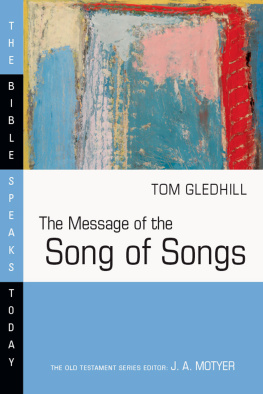
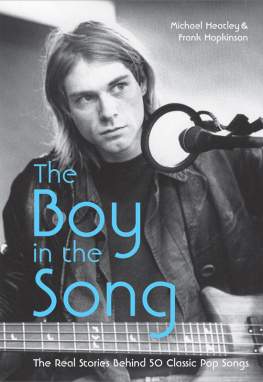
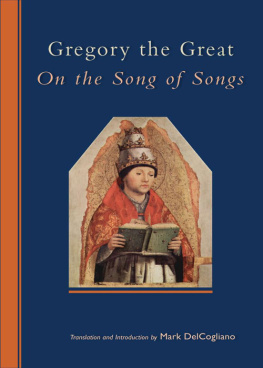
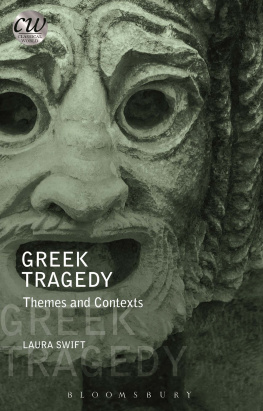
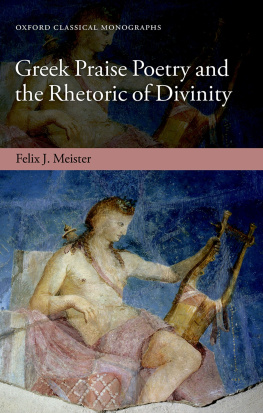
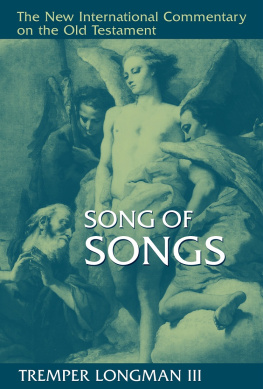

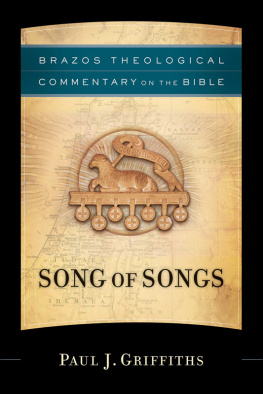
![Othmar Keel - The Song of Songs [Song of Solomon]](/uploads/posts/book/82605/thumbs/othmar-keel-the-song-of-songs-song-of-solomon.jpg)
